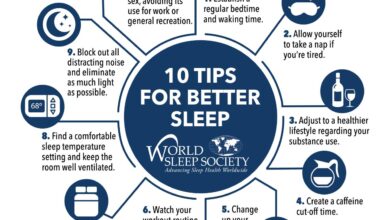
The 1 Trick for Doubling Your Weight Loss Success
The 1 trick for doubling your weight loss success isn’t about a magical potion or a fad diet. It’s about consistency. Imagine yourself finally reaching your weight loss goals, feeling confident and energized. It’s a journey, not a sprint, and consistency is the key to unlocking that transformation.
This isn’t about deprivation or endless hours at the gym. It’s about making sustainable changes that fit seamlessly into your life. Think of it as building a foundation for long-term health and well-being. We’ll explore how to make mindful choices, prioritize sleep and stress management, and discover the joy of movement.
Ready to unlock your weight loss potential? Let’s dive in!
The Power of Consistency: The 1 Trick For Doubling Your Weight Loss Success
Consistency is the cornerstone of successful weight loss. It’s not about drastic changes or temporary fads, but about building sustainable healthy habits that become an integral part of your life.
The Importance of Consistent Healthy Habits
Consistency in healthy habits is crucial for achieving and maintaining weight loss because it allows your body to adapt and adjust to a new way of living. It fosters gradual but sustainable changes, leading to long-term success.
Examples of Consistent Habits
Here are some examples of consistent habits that can contribute to weight loss success:
- Regular Exercise:Aim for at least 30 minutes of moderate-intensity exercise most days of the week. This could include brisk walking, jogging, swimming, or cycling.
- Balanced Diet:Focus on consuming whole, unprocessed foods like fruits, vegetables, lean protein, and whole grains. Limit your intake of processed foods, sugary drinks, and unhealthy fats.
- Hydration:Drink plenty of water throughout the day. Water helps you feel full, supports metabolism, and can prevent overeating.
- Adequate Sleep:Aim for 7-9 hours of quality sleep per night. Sleep deprivation can disrupt hormones that regulate appetite and metabolism.
- Stress Management:Find healthy ways to manage stress, such as exercise, meditation, or spending time in nature. Stress can lead to overeating and weight gain.
Building and Maintaining Consistency
- Start Small:Don’t try to overhaul your entire lifestyle overnight. Instead, focus on incorporating one or two new healthy habits at a time.
- Set Realistic Goals:Set achievable goals that you can realistically maintain. Aim for gradual progress rather than rapid weight loss.
- Track Your Progress:Keep a food journal, exercise log, or use a fitness tracker to monitor your progress. This can help you stay motivated and identify areas where you can improve.
- Find Support:Surround yourself with supportive friends, family, or a weight loss group. Having a support system can help you stay accountable and motivated.
- Be Patient and Persistent:Weight loss is a journey, not a race. There will be setbacks along the way, but it’s important to stay persistent and focus on the long-term goal.
Mindful Eating for Success
Mindful eating is a powerful tool that can transform your relationship with food and contribute significantly to your weight loss journey. It involves paying full attention to your eating experience, savoring each bite, and becoming more aware of your hunger and fullness cues.
By incorporating mindful eating practices, you can make more conscious choices about what you eat and how much, ultimately leading to healthier eating habits and sustainable weight loss.
The Importance of Mindful Eating
Mindful eating is not about restricting or denying yourself food. It’s about cultivating a mindful and conscious approach to your eating habits. When you practice mindful eating, you become more aware of your body’s signals, such as hunger and fullness, and you learn to eat in response to these signals rather than emotional triggers or external cues.
This awareness helps you make healthier food choices and avoid overeating.
Strategies for Practicing Mindful Eating
- Pay Attention to Hunger Cues:Before you eat, take a moment to assess your hunger level. Are you truly hungry, or are you eating out of boredom, stress, or habit? This awareness helps you differentiate between real hunger and emotional eating.
- Eat Slowly and Savour Each Bite:Take your time while eating. Put down your fork between bites and chew your food thoroughly. This allows you to appreciate the taste and texture of your food, which can help you feel more satisfied with smaller portions.
- Eliminate Distractions:When you eat, focus solely on your meal. Avoid distractions such as television, phones, or reading. This allows you to be fully present and engaged with your food.
- Listen to Your Body:Pay attention to your body’s signals of fullness. Stop eating when you feel comfortably satisfied, not stuffed. Don’t wait until you are overly full, as this can lead to discomfort and overeating.
Overcoming Emotional Eating and Cravings
Emotional eating is a common challenge, and it can sabotage your weight loss efforts. When you eat in response to emotions such as stress, boredom, or sadness, you are not addressing the underlying issue. Here are some strategies for overcoming emotional eating:
- Identify Your Triggers:Pay attention to your emotions and thoughts before you eat. What triggers your emotional eating? Once you identify your triggers, you can develop coping mechanisms to manage them.
- Find Healthy Alternatives:Instead of turning to food for comfort, explore other ways to manage your emotions. Engage in activities that you enjoy, such as exercise, meditation, or spending time with loved ones.
- Challenge Your Thoughts:When you feel the urge to eat emotionally, challenge your thoughts. Ask yourself if you are truly hungry or if you are using food to cope with your emotions. This can help you make more conscious choices.
- Seek Support:If you struggle with emotional eating, seek support from a therapist or counselor. They can help you develop strategies for managing your emotions and building healthier coping mechanisms.
Prioritizing Sleep and Stress Management
You might be surprised to learn that getting enough sleep and managing stress are crucial for weight loss success. These two factors are often overlooked, but they play a significant role in regulating hormones, controlling appetite, and boosting metabolism.
The Connection Between Sleep, Stress, and Weight Loss
When you’re sleep-deprived, your body produces more of the stress hormone cortisol. Cortisol can lead to increased appetite, cravings for unhealthy foods, and fat storage, particularly in the abdominal area. Stress, in general, can also trigger similar hormonal changes, leading to similar outcomes.
Improving Sleep Quality
- Establish a Regular Sleep Schedule:Go to bed and wake up at roughly the same time each day, even on weekends, to regulate your body’s natural sleep-wake cycle.
- Create a Relaxing Bedtime Routine:Wind down an hour or two before bed with activities like taking a warm bath, reading, or listening to calming music.
- Optimize Your Sleep Environment:Make sure your bedroom is dark, quiet, and cool. Consider using blackout curtains, earplugs, or a white noise machine.
- Avoid Caffeine and Alcohol Before Bed:These substances can interfere with sleep quality.
- Get Regular Exercise:Physical activity can improve sleep quality, but avoid exercising too close to bedtime.
Managing Stress Levels
- Practice Mindfulness and Meditation:These techniques can help you become more aware of your thoughts and feelings, allowing you to manage stress more effectively.
- Engage in Relaxing Activities:Find activities that help you de-stress, such as listening to music, spending time in nature, or pursuing hobbies.
- Connect with Loved Ones:Social support is essential for managing stress. Spend time with friends and family, or join a support group.
- Seek Professional Help:If you’re struggling to manage stress on your own, consider seeking help from a therapist or counselor.
How Sleep and Stress Management Contribute to Weight Loss Success
When you prioritize sleep and stress management, you create a hormonal environment that supports weight loss. Adequate sleep helps regulate your appetite hormones, making you feel more satisfied after meals and less likely to overeat. Stress management helps reduce cortisol levels, which in turn can decrease cravings and improve insulin sensitivity, making it easier to lose weight and keep it off.
Harnessing the Power of Movement
You’ve probably heard it a million times: exercise is crucial for weight loss. But beyond the obvious, regular physical activity plays a vital role in amplifying your weight loss success. It’s not just about burning calories; it’s about boosting your metabolism, building muscle mass, and improving your overall health.
A Sample Weekly Exercise Plan
To maximize the benefits of exercise, incorporating different types of physical activity is key. Here’s a sample weekly plan that blends cardio, strength training, and flexibility:
- Monday:30 minutes of moderate-intensity cardio (brisk walking, jogging, cycling) followed by 20 minutes of strength training focusing on upper body.
- Tuesday:30 minutes of yoga or Pilates for flexibility and core strengthening.
- Wednesday:Rest or light activity like a leisurely walk.
- Thursday:30 minutes of moderate-intensity cardio followed by 20 minutes of strength training focusing on lower body.
- Friday:30 minutes of high-intensity interval training (HIIT) for maximum calorie burn.
- Saturday:Active recovery day – go for a hike, play a sport, or engage in a fun activity you enjoy.
- Sunday:Rest or light activity.
Finding Enjoyable Forms of Exercise
The most effective exercise routine is the one you’ll actually stick to. So, finding activities you enjoy is crucial for long-term success.
- Explore different options:Try out various activities like dancing, swimming, rock climbing, or group fitness classes. You might discover hidden passions you never knew you had.
- Make it social:Exercise with friends or family. The social aspect can boost motivation and make workouts more enjoyable.
- Set realistic goals:Start small and gradually increase the intensity and duration of your workouts. Avoid overwhelming yourself with too much too soon.
- Listen to your body:Don’t push yourself too hard, especially when starting out. Take rest days when needed and adjust your routine as necessary.
The Importance of Hydration
Staying hydrated is crucial for weight loss success and overall well-being. Water plays a vital role in numerous bodily functions, including regulating body temperature, transporting nutrients, and flushing out waste products. When you’re adequately hydrated, your body functions optimally, leading to increased energy levels, improved metabolism, and enhanced satiety.
Benefits of Hydration for Weight Loss
Adequate hydration can contribute significantly to your weight loss journey. Water is a calorie-free beverage that helps you feel fuller, reducing your overall calorie intake. It also aids in boosting your metabolism, which helps you burn more calories throughout the day.
You know how people say consistency is key to weight loss? Well, I’d argue that cooking healthy meals at home is the secret sauce. To make sure you’re not sabotaging your efforts, avoid these common mistakes when cooking chicken, like overcooking or not seasoning properly, by checking out this helpful article: 7 mistakes to avoid when cooking chicken.
Once you master those basics, you’ll be well on your way to doubling your weight loss success with delicious, homemade meals.
- Increased Satiety:Drinking water before meals can help you feel fuller, leading to a reduction in overall calorie consumption. Research suggests that consuming water before meals can lead to a decrease in calorie intake by up to 13%.
- Boosted Metabolism:Water plays a vital role in regulating body temperature and transporting nutrients. When you’re adequately hydrated, your body functions optimally, leading to an increase in metabolic rate, which helps you burn more calories.
- Reduced Cravings:Often, thirst is mistaken for hunger. Drinking water can help curb cravings and prevent overeating, ultimately contributing to your weight loss goals.
Tips for Staying Hydrated
Staying adequately hydrated throughout the day is essential for maintaining optimal health and supporting your weight loss efforts.
- Carry a Water Bottle:Keep a reusable water bottle with you at all times and refill it throughout the day. Aim to drink water consistently, even when you’re not thirsty.
- Drink Water Before Meals:Drinking a glass of water before meals can help you feel fuller and consume fewer calories. This strategy is particularly helpful for managing hunger pangs and avoiding overeating.
- Set Reminders:Use a phone app or set alarms to remind yourself to drink water throughout the day. This can help you stay on track and avoid dehydration.
- Choose Water Over Sugary Drinks:Avoid sugary drinks like soda, juice, and sweetened tea, as they contribute to calorie intake and can hinder your weight loss progress. Opt for water instead.
- Infuse Your Water:Add slices of fruits, vegetables, or herbs to your water for a refreshing flavor boost. This can make drinking water more enjoyable and encourage you to stay hydrated.
Making Smart Food Choices

Making smart food choices is a crucial aspect of weight loss success. It involves understanding the nutritional value of different foods and selecting those that promote satiety and support your weight loss goals. This involves being mindful of the types of food you consume, focusing on nutrient-rich options, and managing portion sizes.
Nutritional Value of Food Groups, The 1 trick for doubling your weight loss success
Understanding the nutritional value of different food groups is key to making informed food choices. This table highlights the nutritional composition of common food groups and their impact on weight loss:| Food Group | Key Nutrients | Impact on Weight Loss ||—|—|—|| Fruits & Vegetables | Vitamins, Minerals, Fiber | High in fiber, low in calories, promote satiety || Lean Protein | Protein, Essential Amino Acids | Builds and maintains muscle mass, promotes fullness || Whole Grains | Fiber, Complex Carbohydrates | Provide sustained energy, promote satiety || Healthy Fats | Omega-3 Fatty Acids, Monounsaturated Fats | Support heart health, contribute to satiety || Processed Foods | Sugars, Saturated Fats, Sodium | Often high in calories, low in nutrients, can contribute to weight gain |
You know that feeling when you’re really trying to lose weight, but you’re not seeing the results you want? Well, one trick that can really help is focusing on eating whole, unprocessed foods. And that’s where the question of “how super are superfoods really?” comes in.
This article explores the hype surrounding superfoods, and it’s a great starting point for understanding how to incorporate them into your diet for optimal health and weight loss. Ultimately, whether you call them superfoods or just good-for-you foods, the key is to choose nutrient-rich options that support your body’s natural ability to thrive.
Healthy and Satisfying Meal and Snack Options
Here are some examples of healthy and satisfying meal and snack options that can support your weight loss goals: Breakfast:* Oatmeal with berries and nuts
You know that feeling when you’re crushing your workouts but the scale isn’t budging? The secret weapon to unlocking serious weight loss is building muscle! And what better place to start than your glutes? Stronger glutes mean a faster metabolism, a more toned backside, and better overall performance.
Check out these 5 best moves for stronger glutes to kickstart your journey towards a leaner, stronger you! So, ditch the diet fads and embrace the power of muscle building – your body will thank you for it!
- Greek yogurt with fruit and granola
- Whole-wheat toast with avocado and egg
Lunch:* Salad with grilled chicken or fish
- Lentil soup with whole-grain bread
- Leftovers from a healthy dinner
Dinner:* Salmon with roasted vegetables
- Chicken stir-fry with brown rice
- Lentil stew with whole-grain bread
Snacks:* Fruits and vegetables with hummus
- Trail mix with nuts and seeds
- Greek yogurt with berries
Reading Food Labels and Understanding Portion Sizes
Reading food labels is essential for making informed choices. Pay attention to:* Serving size:This indicates the amount of food the label’s nutritional information refers to.
Calories This tells you how many calories are in a serving.
Fat, saturated fat, and trans fat These indicate the amount of different types of fat in a serving.
Sodium This indicates the amount of salt in a serving.
Sugar This indicates the amount of sugar in a serving.Understanding portion sizes is also critical. It’s easy to overeat, so it’s important to be mindful of the amount of food you’re consuming. A good rule of thumb is to use smaller plates and bowls to help control portion sizes.
The Power of Support and Accountability

Embarking on a weight loss journey can be challenging, but it doesn’t have to be a solitary endeavor. Surrounding yourself with a supportive network can significantly enhance your chances of success. The power of support and accountability can provide the motivation, encouragement, and structure needed to stay on track and reach your goals.
The Benefits of Seeking Support
Having a support system can offer numerous benefits during your weight loss journey.
- Emotional Support:Weight loss can be emotionally taxing, and having people to talk to, listen, and offer encouragement can help you navigate the ups and downs. Sharing your struggles and celebrating your victories with loved ones can provide a sense of validation and motivation.
- Practical Guidance:Friends, family, or professionals can offer practical advice and tips based on their own experiences or expertise. They might share healthy recipes, exercise ideas, or strategies for managing cravings.
- Accountability:Knowing that someone is checking in on your progress can keep you accountable for your actions. Having a support system can help you stay committed to your goals and avoid slipping back into old habits.
Finding a Support Group or Accountability Partner
There are various ways to find a support system for your weight loss journey.
- Friends and Family:Start by talking to your close friends and family members. Let them know your goals and ask for their support. You can also involve them in your journey by inviting them to join you for healthy activities or cooking healthy meals together.
- Online Communities:There are numerous online communities dedicated to weight loss and healthy living. These platforms can provide a sense of belonging, connect you with people who understand your struggles, and offer support and encouragement.
- Support Groups:Many organizations offer in-person or virtual support groups for people who are trying to lose weight. These groups provide a safe and supportive environment to share your experiences, learn from others, and receive guidance from professionals.
- Accountability Partners:An accountability partner can be a friend, family member, or even a professional coach who commits to supporting you in your weight loss journey. You can set regular check-ins, share your progress, and hold each other accountable for staying on track.
The Power of Accountability
Accountability is a key factor in achieving weight loss success. Having someone to report to, share your progress with, and discuss your challenges can significantly increase your chances of reaching your goals.
- Increased Motivation:Knowing that someone is expecting you to stay on track can provide a significant boost in motivation. You’re less likely to skip workouts or indulge in unhealthy foods if you know you have to answer to someone.
- Reduced Temptation:Having an accountability partner can help you resist temptation. Knowing that you have to explain your choices can make you think twice before giving in to cravings or skipping workouts.
- Improved Consistency:Accountability can help you develop consistent healthy habits. Regular check-ins with your partner can help you stay on track and avoid falling back into old patterns.
Final Summary
Remember, weight loss success is a marathon, not a sprint. It’s about making sustainable changes that fit your lifestyle and setting realistic goals. By embracing consistency, mindful eating, prioritizing sleep and stress management, and finding joy in movement, you’ll be well on your way to achieving your weight loss goals.
So, take a deep breath, believe in yourself, and let’s embark on this journey together!






